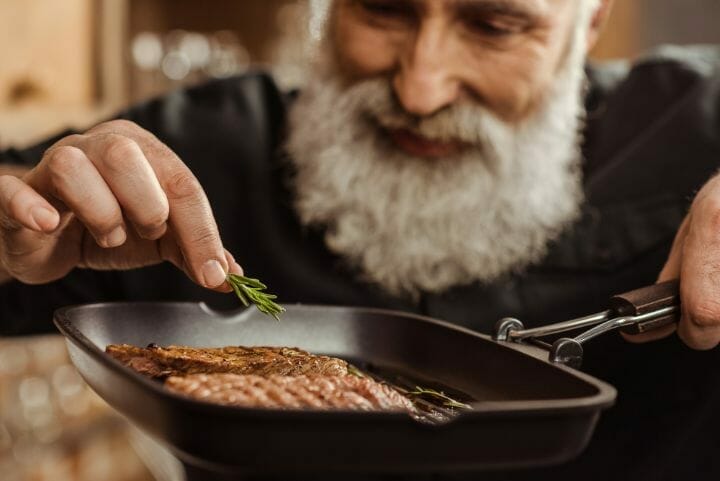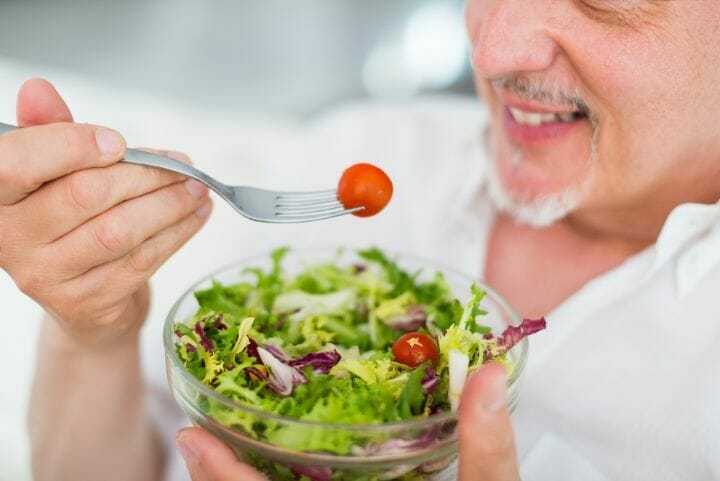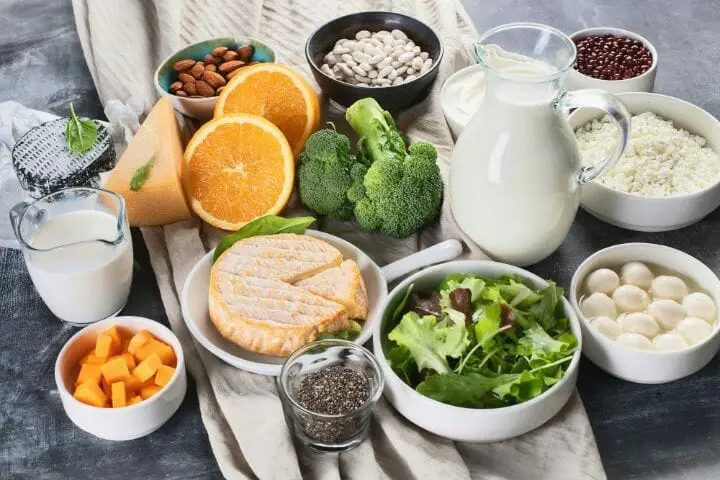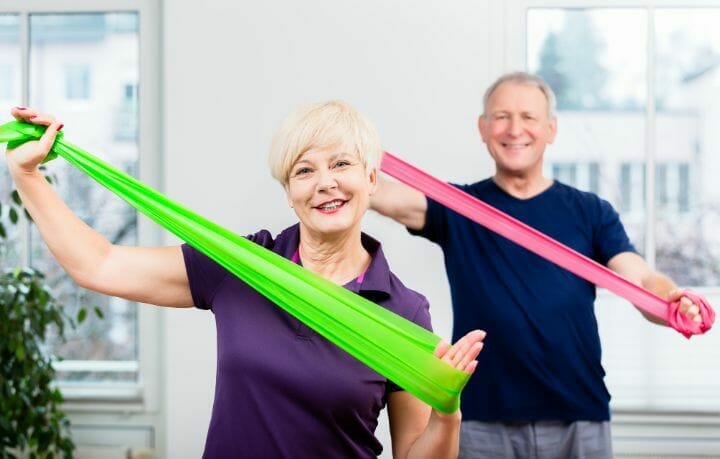Fasting or calorie restriction for weight loss and well-being is widely popular. However, the impact of these diet plans on bone mass, bone density, and overall bone health is yet to be wholly established.
Several studies have reported that fasting poses a risk factor for those who have osteoporosis. It can adversely affect bone mass and bone mineral density. Prolonged fasting can cause bone loss and even disrupt your thyroid hormone, wreak havoc on your insulin resistance, and aggravate heart disease.
Research studies have been carried out to study the effects of vegetarian diets, vegan diets, keto diets, intermittent fasting calorie restrictions on bone health. These studies also analyze the effects on bone mineral density and bone fracture risk.
Contents
What Is Intermittent Fasting?
Intermittent fasting refers to an eating pattern characterized by periods or cycles of fasting followed by a non-fasting period.
Recent reports have indicated that like caloric restriction, intermittent fasting can lead to an approximate 0.5 kg per week weight loss in obese and overweight people. Studies suggest that intermittent fasting can boost metabolic profiles and decrease body weight. This is because caloric restriction lowers the risk of obesity and related chronic disease.
Intermittent Fasting and Bone Health
Fasting has been shown to affect the secretion of the thyroid hormone, but there is limited data on the impact of intermittent fasting on bone health. One study, which involved 100 overweight persons monitored for 6 months, did not uncover any impact on lean mass, total body bone mineral content, or total body bone mineral density.
However, studies do reveal that vegetarian diets and vegan diets are typically associated with lower bone density when compared to meat-based diets. They can potentially raise the risk of bone fractures and bone abnormalities. Vegans and vegetarians face a higher risk of osteoporosis, osteopenia, and bone fractures due to depreciating bone health.
If you follow a vegan or vegetarian diet, you can consider taking Vitamin K, Vitamin C, Vitamin B, and other supplements vital for bone health and overall well-being (after consulting with a doctor).
You may also like Best Weighted Vest for Osteoporosis
Intermittent Fasting and Osteoporosis
Although intermittent fasting and calorie restriction for weight loss and well-being have in practice for a long time, the impact of these plans and regimens on bone mass, bone density, and overall bone health is yet to be completely established.
Fasting has been shown to affect the secretion of parathyroid hormone and has an adverse effect on people with insulin sensitivity, heart disease, and stress.
While some nutrients (e.g., Vitamin D and calcium) are essential for maintaining good bone health, others like proteins, Vitamin B 12, Vitamin K, Vitamin C, zinc, and fatty acids, are crucial for combating bone loss. However, the majority of these are found in animal products.
A study published in 2009 revealed that bone mineral density(around the lumbar spine) was 4% lower in vegetarians than in non-vegetarians. Vegans were also found to have a significantly lower lumbar spine bone mass in comparison to their non-vegetarian counterparts.
Vegetarians and vegans demonstrated approximately a 32% higher fracture risk when compared with non-vegetarians, drawing to the conclusion that vegetarianism and veganism can have adverse effects on bone health. By the way, we have a separate article on interesting myths and facts about osteoporosis.
Key Takeaways:
- Vegan and vegetarian diets are low in protein, which is one of the main components of the bone matrix. Although many studies reveal that a high protein level did not lead to a significant increase in bone mineral density, vegetarian and vegan diets introduce far less protein than needed. This increases the risk of low bone density and osteoporosis fractures.
- People who follow vegetarian and vegan diets were also found to be consuming lesser calcium.
- Vitamin B 12, which is present only in animal products, regulates growth and bone mass. Vegans were found to be especially deficient in Vitamin B12.
- Vegetarian diets result in a high intake of potassium-rich nutrients, such as fruits and vegetables. These are associated with low-dietary-acid loads, which are correlated with lower bone resorption and consequently to higher bone mineral density.
Due to the need for preventive or precautionary measures against osteopenia and osteoporosis, several research studies have focused on the effect of fasting and dietary restrictions on bone fragility and bone health.
Bones generally reach their maximum bone mass and bone mineral density during adulthood around the age of 20. It is also a known fact that this acquired bone mass decreases with age.
Dietary changes have a significant impact on decreasing bone density and weakening bone metabolism after reaching maturity. The effect of fasting and calorie restriction is seen to be much more severe in younger individuals.
You may also like Best Protein Shakes for Seniors
Keto Diet and Osteoporosis
Findings indicate that there may be an increased risk of insulin resistance with this type of diet that may lead to type 2 diabetes. Insulin resistance is a complex metabolic condition with no single cause. The liver will become insulin resistant when the liver will fail to decrease glucose production.
When it comes to bone health, researchers from the Australian Institute of Sport and Harvard Medical School found that following a ketogenic diet for just a few weeks led to a decrease in markers for bone metabolism and formation and an increase in markers of bone breakdown.
Loss of Bone Density and Risk of Osteoporosis Due to Intermittent Fasting
Osteoporosis is a bone health disorder characterized by poor bone strength and a higher likelihood of fracture due to skeleton weakness. Osteoporosis is often called the ‘silent disease’ as it does not display any symptoms until the disease has progressed.
Diet plays a crucial role in the treatment and management of osteoporosis. Unsaturated fat and protein are positively associated with bone health. For example, polyunsaturated fatty acids are beneficial in treating osteoporosis. Fruit and vegetables protect against premenopausal bone loss, and help with retaining bone density, bone health, and enhance overall well-being.
Fad diets like Apple Cider Vinegar for osteoporosis and prolonged fasting could be detrimental to bone health, accelerating the risk of osteopenia and osteoporosis.
Role of Vitamin D and calcium in Bone Formation and Osteoporosis:
Vitamin D and calcium and has significant importance in overall bone health. Calcium supplements and vitamin D supplements are strongly recommended by nutritionists and medical experts. Experts recommend 1000 to 1200 mg/calcium per day for older people at a higher risk of osteoporosis.
Calcium is the nutrient that is building block of the bones of human, and it will help in maintaining bone strength and bone density throughout the lifetime of an individual.
However, calcium may reach its potential of full bone-building with the presence of vitamin D. Vitamin D and calcium work with one another to protect the bones. Calcium also helps build and maintain the bones, while vitamin D helps to absorb calcium.
Vitamin D and calcium play an important role in the metabolism of bone. The remodeling of mature bone tissue and new bone formation is called the process of bone metabolism. Bones are regulated and reformed throughout the life of an individual, all the while contributing to the health of the skeletal framework.
The parathyroid hormone, calcitonin, and vitamin D combine to stimulate bone regulation and bone mineral metabolism. The reformation of bones in the body helps in fighting against several diseases such as osteoporosis, aiding both the elderly and adolescents with healthy bones.
You may also like Best Protein Bars for Seniors
Diet and Lifestyle Changes for Osteoporosis
A few changes in your diet and lifestyle can go a long way in reducing the risk of osteoporosis and improving the levels of vitamin D and calcium in the body. We have a separate article guide on healthy eating for seniors.
Here’s what can be done for living well with osteoporosis:
Limit Salt Intake
Increased intake of salt results in a decrease in the body’s calcium levels as salt gets rid of the calcium present in the body. This results in lower bone mineral density and bone strength. Foods that are high in salt include packaged chips, processed meat, cheese, and cold cuts. It would be prudent to aim for less than 2,300 milligrams of sodium a day to maintain bone health.
Be Active
Exercise including strength exercises, aerobic exercises, and isometric exercises makes the bones stronger and reduces your risk of bone fractures. A sedentary lifestyle increases your chances of obesity and chronic disease. Obesity increases your risk factor for osteoporosis.
Limit Alcohol
Chronic alcohol consumption increases the parathyroid hormone, causing a steep decline in calcium from the bone. This affects bone density and bone health. Medical experts recommend not more than one drink a day for women and two for men. For people with osteoporosis, we recommend further limiting the use of alcohol as alcohol interferes with calcium re-absorption and calcium levels.
Avoid Tobacco
Smoking decreases the ability of the body to form new bone tissues. In regular smokers, bone tissue formation ability, lung capacity, and overall health are adversely affected. Smokers have a bigger chance of bone fracture and more often, the injury/fracture takes a longer time to heal.
Consume Antioxidants
Eating a diet rich in antioxidants can help increase your blood antioxidant levels to fight oxidative stress and reduce the risk of diseases. Consumption of antioxidant vitamins results in decreased levels of oxidative stress and shows a beneficial effect on bone quality.
You may also like Best Protein Bar for Bariatric Patients
Conclusion
To combat the decrease in bone health and delay the onset of osteoporosis, a diet plan and exercises like swimming and yoga are recommended. Good nutrition with an adequate amount of proteins, fats, and carbs, along with regular exercise, like yoga for osteoporosis, is recommended for the management of osteoporosis in the elderly.
Also, for older women who are at risk of postmenopausal osteoporosis, we recommend that a combination of weight-bearing exercise, a healthy diet, and limited consumption of alcohol are key factors to maintaining bone mass.






